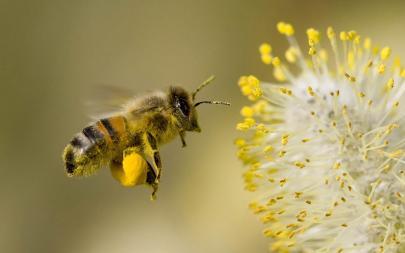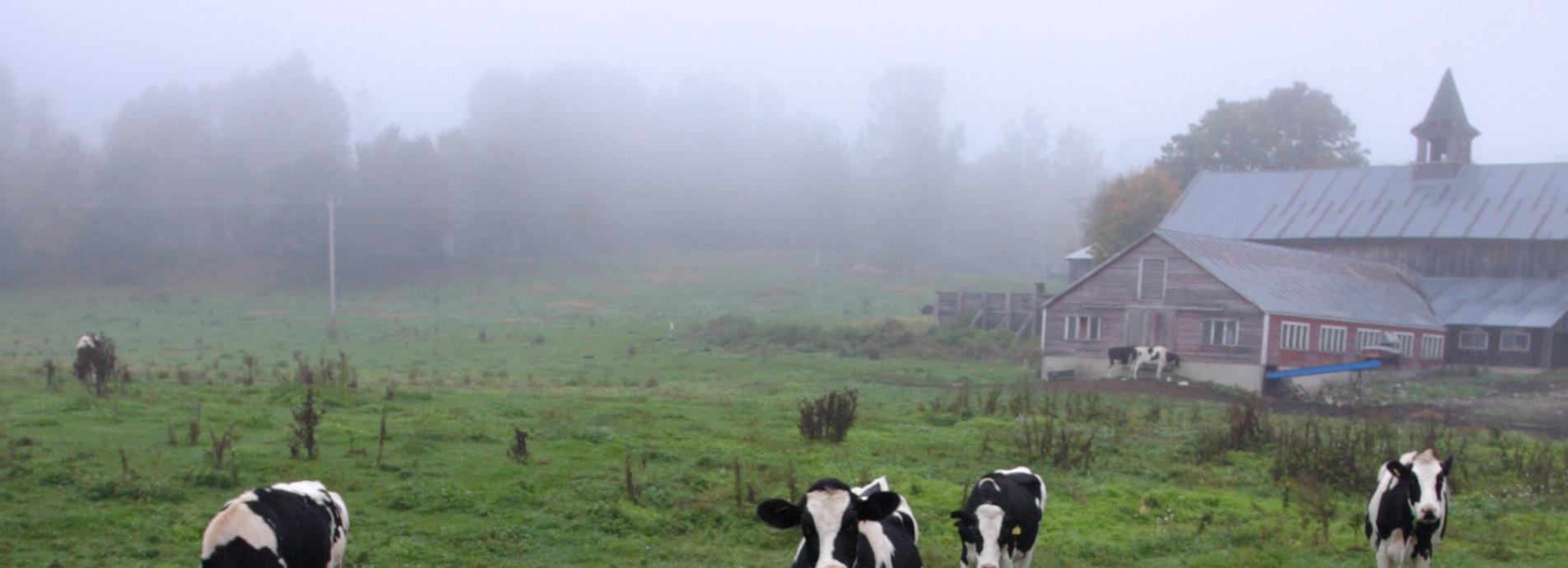Vermont Legislative Update
NOFA-VT has been tracking several bills as they proceed through the legislature this session, including H.663 (the agricultural enterprise bill), H.688 and H.915 (two bills related to pollinator protection), and H.661 and H.903 (two bills related to regenerative agriculture).
H.663: The agricultural enterprise bill. The goal of H.663 is to create statewide consistency in how farms operating or developing an "accessory on-farm business" (e.g. farm tours, tastings, educational events, value-added processing, and more) are regulated by towns/municipalities. H.663 defines what constitutes an "accessory on-farm business" and proposes that municipal land use bylaws may not prohibit such businesses in the same location as a farm regulated under the RAPs.

NOFA-VT is part of a coalition of groups which worked collectively to draft and introduce H.663, and we are continuing to track and support it as it moves through the legislature. If signed into law, our hope is that this bill will make it easier for farms to develop innovative ways of generating additional income to help their farms be more economically viable, and to keep land in agriculture.
H.663 has passed the full House and is now in the Senate Committee on Agriculture, which is expected to take up the bill mid-March after returning from the Town Meeting week break. If you or someone you know is interested in providing testimony on this bill, please contact Maddie at [email protected]
H.688 & H.915: Pollinator protection bills. Introduced in January 2018, H.688 proposed to restrict the sale and use of neonicotinoid pesticides (a class of pesticides found to be harmful to pollinator populations), increase pesticide registration fees, and require reporting on the use of seeds treated with neonicotinoids, among other provisions.
Following extensive testimony and discussion, the House Ag & Forestry Committee has decided to replace H.688 with committee bill H.915. The new bill, H.915, would require a person who sells treated article (i.e. neonicotinoid-treated) corn or soybean seed in Vermont to also offer for sale untreated corn or soybean seed. Additionally, the bill requires the Secretary of Agriculture to assess the effect of neonicotinoid treated seeds on pollinator losses in the State, and to develop and implement an educational program to inform pesticide users about the effects of pesticides on pollinators. Stay tuned for more information as this bill moves through the legislature.
H.661 & H.903: Regenerative agriculture bills. H.661, introduced early on in the 2018 session, proposed to create and fund a pilot program to support a small number of farmers to transition to regenerative organic agriculture using the “Regenerative Organic Certification” (ROC) standards developed by Rodale Institute. However, the ROC standards were then (and are still, as of March 5, 2018) in draft form. While there is a great deal of support from NOFA-VT and others in the state for expanding the use of farming practices that improve soil health, protect water quality, and mitigate climate change, testimony around H.661 was marked by uncertainty around the proposed standards and inconsistent support for this particular approach.
In response, the House Ag & Forestry Committee has introduced H.903, which proposes to put into law the Agency of Agriculture’s existing “Vermont Environmental Stewardship Program” (VESP). According to the Agency of Agriculture, Food & Markets, VESP is a voluntary program that "encourages and supports local agricultural producers to achieve environmental and agricultural excellence." The program's stated goal is to "accelerate water quality improvements through additional voluntary implementation efforts, and to honor farmers who have already embraced a high level of land stewardship." H.903 passed out of the House Ag Committee on February 27, 2018. A full floor vote in the House has been postponed until at least March 14, 2018, but it is expected to pass. NOFA-VT will continue tracking this bill for the remainder of the session and will offer testimony when it is taken up in the Senate.
Question or comments on these or other ag-related bills? Email [email protected]. To find the text and updated status of these or other bills, visit leg.vermont.gov.
2018 Farm Bill
With the 2014 Farm Bill set to expire in September of this year, Congress has begun work on the next version. In March, Maddie Kempner will be attending the National Organic Coalition’s (NOC) annual fly-in to advocate for strong support for organic in the next Farm Bill. Specifically, we’ll be supporting increased funding for organic research and data collection, improved enforcement of organic regulations (including fraud prevention) at the federal level, and improved access to conservation programs like EQIP for organic producers.
In addition, NOFA-VT is also strongly advocating for the continuation of organic certification cost share programs. Certification cost share allows organic producers and processors to be partially reimbursed for the costs of certification, and we’ve been told these programs are severely threatened in the House version of the Farm Bill.
Finally, with organic dairy producers in Vermont and across the country in crisis, we’re continuing to push for the immediate publication and implementation of the Origin of Livestock rule, consistent interpretation and enforcement of grazing requirements for organic dairy animals, and more stringent requirements for inspectors and certification staff working with large (over 1,000 cow) dairies.
Organic Farmers Association
NOFA-VT is a member of the Organic Farmers Association (OFA), a farmer-led organization formed in 2016 to represent the interests of certified organic farmers in federal policy issues. In March, OFA elected its first Governing Council, which includes NOFA-VT Advocacy Coordinator Maddie Kempner in an organizational representative (i.e. non-voting) seat. As a farmer-led organization, OFA has a strict one farm, one vote policy, and only certified organic farmers vote on issues of policy and organizational structure. Organizational representatives serve in an advisory capacity to support OFA’s mission, which is to provide a strong and unified national voice for domestic certified organic producers.
If you have questions about OFA or are interested in becoming a member, visit the OFA website to learn more.
Real Organic Project
The Real Organic Project, formed in early 2018, is a voluntary initiative aimed at creating a new “add-on” label that uses USDA organic certification as a base with a small number of additional requirements. The project has formed in response to what its leaders see as the failings of the USDA National Organic Program in enforcing standards around hydroponic production, meaningful outdoor access for livestock and poultry, and ensuring the legitimacy of imported organic products. Still in its infancy, the Real Organic Project will be working this year to develop in detail the standards with which operations must comply, the certification process, and oversight of the label.
NOFA-VT recognizes that there are areas where the National Organic Program is falling short and needs to be strengthened to provide consistent standards and more effective oversight and enforcement. “Organic plus” initiatives like the Real Organic Project can serve as a mechanism to highlight gaps in the baseline organic certification program and raise the bar by laying out standards that more fully and consistently meet consumer expectations. Our hope is that this initiative serves that function for the USDA organic seal. To that end, Nicole Dehne, Certification Director for Vermont Organic Farmers (VOF), will be serving on the standards board for the Real Organic Project, and Maddie Kempner, NOFA-VT Advocacy Coordinator, will be serving on the advisory board. The standards board will have its first meeting in March.
At the same time, we recognize the potential for an additional label to add to consumer confusion and the need for ongoing education to clarify the meaning of various claims in the marketplace. We also recognize that the vast majority of organic operations comply with a strict set of meaningful standards in obtaining USDA organic certification, and we plan to continue to work equally hard to strengthen the USDA organic seal.

